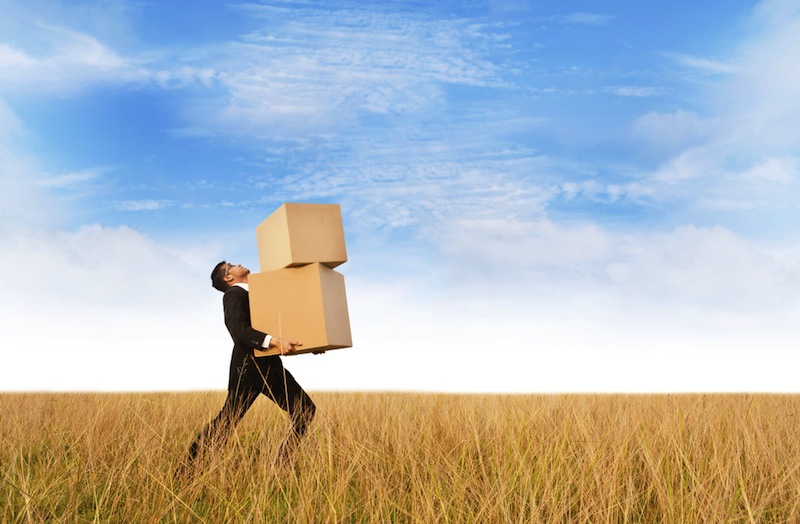To the Powerless, World Weighs Heavier

Get the world’s most fascinating discoveries delivered straight to your inbox.
You are now subscribed
Your newsletter sign-up was successful
Want to add more newsletters?

Delivered Daily
Daily Newsletter
Sign up for the latest discoveries, groundbreaking research and fascinating breakthroughs that impact you and the wider world direct to your inbox.

Once a week
Life's Little Mysteries
Feed your curiosity with an exclusive mystery every week, solved with science and delivered direct to your inbox before it's seen anywhere else.

Once a week
How It Works
Sign up to our free science & technology newsletter for your weekly fix of fascinating articles, quick quizzes, amazing images, and more

Delivered daily
Space.com Newsletter
Breaking space news, the latest updates on rocket launches, skywatching events and more!

Once a month
Watch This Space
Sign up to our monthly entertainment newsletter to keep up with all our coverage of the latest sci-fi and space movies, tv shows, games and books.

Once a week
Night Sky This Week
Discover this week's must-see night sky events, moon phases, and stunning astrophotos. Sign up for our skywatching newsletter and explore the universe with us!
Join the club
Get full access to premium articles, exclusive features and a growing list of member rewards.
Feeling powerless? Best not to hit the weight room.
New research finds that people who feel powerless perceive objects as heavier, an example of a social emotion altering sensory perception. The effect may be evolution's quirky way of preventing the socially powerless from exhausting their resources, said study researcher Eun Hee Lee, a doctoral candidate at the University of Cambridge.
"Powerful people know they have control of resources for themselves, and even others' [resources]," Lee told Live Science. The powerless, on the other hand, live in danger of scarcity. [5 Ways Your Emotions Influence the World (and Vice Versa)]
Power's influence
Power dynamics are a fact of living as a social organism — any time there is more than one person, power dynamics exist, she said.
"I wanted to look at how power can influence the way we see the world, above our emotional perception of things," she said.
To do so, the researcher set up a series of three similar experiments. In the first experiment, 145 participants filled out questionnaires meant to gauge their personal sense of social power. Next, each person was given a 1 lb. (0.4 kilogram) box and told how much it weighed. They then lifted a 2 lb. (0.9 kg) box and an 8.2 lb. (3.7 kg) box and guessed how much each weighed.
Get the world’s most fascinating discoveries delivered straight to your inbox.
The people with a lower inherent sense of power estimated that the boxes were heavier. To test if there were something else in the personality of powerless people that altered their perceptions, Lee set up a second study. In this version, 41 people were told they were participating in an ergonomics study. They were asked to lift three identical boxes of varying weights and guess the weight of each, just as in the first study.
Next, they were told to sit in an office chair in one of two positions: The first was an expansive pose with one arm on the armrest, the other on a desk, and legs crossed, so that the ankle of one leg rested on the person's other thigh — imagine a confident CEO surveying his or her domain.
The rest of the participants were asked to sit with their hands under their thighs, shoulders down and legs together. From previous research, Lee and her colleagues knew the first pose confers a sense of power, while the second makes people feel weak.
Next, the participants lifted the same three boxes, though they believed these were a different set of boxes. Consistent with the first study, the people prompted to feel powerless gave heavier ratings than did other participants.
Price of powerlessness
In the final study, Lee investigated whether powerless people think things are heavier, or whether powerful people think they're lighter. The researchers repeated experiment number two, this time making people feel powerful or powerless by having them write about an experience that evoked one of those emotions. A third group of the 68 total participants wrote about a neutral experience.
This time, the researchers found that high-power people and the people who felt neutral showed the same patterns in their box-rating abilities. Low-power people, however, still perceived the boxes as heavier.
"It was the powerless people who were different," Lee said.
Power isn't the only way to alter perceptions of heaviness. Earlier studies have found that people who believe something, such as a book, is important are more likely to see it as heavy. In that case, Lee said, the changing perception comes from a linguistic metaphor. In her study, it's likely the perception reflects people's understanding of their own resources.
Next, Lee plans to figure out how the mind alters the body's perception. She's testing hormones linked with dominance and power (testosterone and cortisol, respectively) to see if they affect ratings of heaviness.
The researchers report their findings this week in the Journal of Experimental Psychology.
Follow Stephanie Pappas on Twitter and Google+. Follow us @livescience, Facebook & Google+. Original article on Live Science.

Stephanie Pappas is a contributing writer for Live Science, covering topics ranging from geoscience to archaeology to the human brain and behavior. She was previously a senior writer for Live Science but is now a freelancer based in Denver, Colorado, and regularly contributes to Scientific American and The Monitor, the monthly magazine of the American Psychological Association. Stephanie received a bachelor's degree in psychology from the University of South Carolina and a graduate certificate in science communication from the University of California, Santa Cruz.
 Live Science Plus
Live Science Plus










